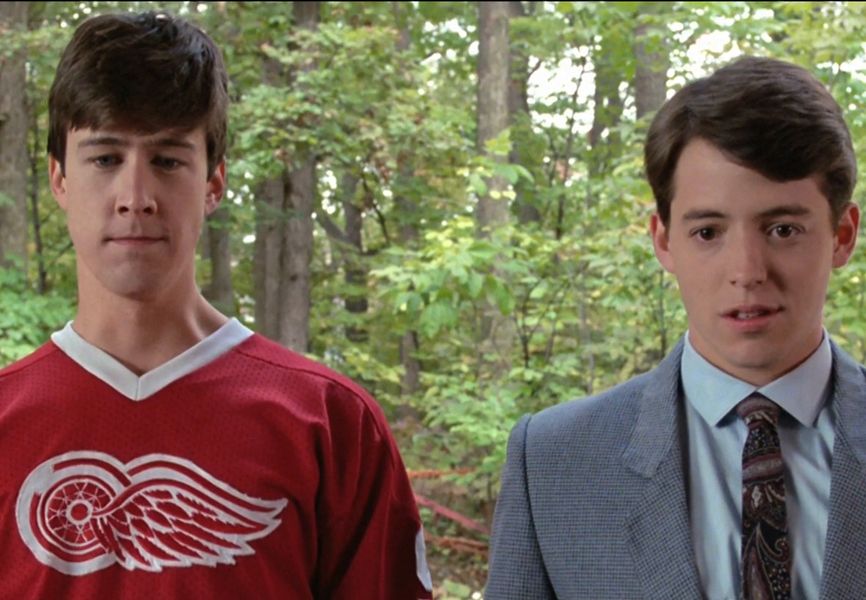There are few directors who can truly claim ownership of an entire sub-genre, though, for John Hughes, this certainly may be the case. A quintessential filmmaker of the late 20th century, Hughes made a name for himself by re-inventing the coming-of-age film with an impressive oeuvre of films, including Sixteen Candles, Weird Science and The Breakfast Club. Whilst many of these films have long been recognised as classics, many have wrinkled with age and bear the attitudes of a time long lost, 1986’s Ferris Bueller’s Day Off remains as endearing as ever.
A coming-of-age story where the titular character doesn’t actually come of age, Ferris Bueller’s Day Off is an optimistic celebration of youth rather than a crucial examination of how it can shape one’s future. A cheeky, exuberant young man, Ferris Bueller, played by Matthew Broderick, decides to take the day off school, taking his girlfriend Sloane and his best friend, Cameron on a trip to Chicago where they enact all their youthful fantasies.
While Ferris Bueller is indeed an arrogant, cocky young man, he also possesses a dogged youthful exuberance for the outdoors, a trait that is certainly rare to behold in contemporary society. Instead, it is his friend, Cameron, who possesses many of the stereotypical behaviours of the teenage demographic, lying lifeless in a dark bedroom, refusing to go to school with an apparent mental health issue.
Though the film may be called Ferris Bueller’s Day Off, it should really be Cameron’s, especially when considering one popular theory about the film.
Is Ferris Bueller a figment of Cameron’s imagination?
Ferris Bueller’s friend and accomplice, Cameron, is a hot-headed emotional coiled spring who goes along with the antics of his best friend due to both his own lack of self-control as well as Bueller’s addictive energy. Oppressed by the implied emotional manipulation of his father, Cameron is encouraged to leave the confines of his home in hope of finding happiness elsewhere.
The day off itself is one of wonder and revelation for Cameron in which he realises that to fix his situation, he must take a stand against his father. In a rousing and powerful monologue at the film’s climax, he says: “I gotta take a stand against him, I am not gonna sit on my ass as the events that affect me unfold to determine the course of my life, I’m gonna take a stand”. This is, after all, Cameron’s film, with Ferris Bueller’s arc reduced to mere simplicity.
Considering Cameron as the film’s main character suddenly creates a different dynamic, with many fans of the original film suggesting that much of the film’s events occur as a figment of imagination, and Bueller is merely a fantastical figure of aspiration for Cameron. Bueller is a confident, good-looking protagonist, a hallucinatory embodiment of all that Cameron desires to be, the exact opposite of his introverted characteristics.
As such, Cameron takes a day off and explores the streets of Chicago under the identity of the fake Ferris Bueller, finds joy in life’s simplicities and returns home, where he reconsiders his place in life. Considering some of the insane stuff that Ferris Bueller does throughout the film, like singing ‘Twist & Shout’ in a wild street performance, this theory doesn’t actually seem that far-fetched. Throughout the film, Bueller is a friend, guide and guru to Cameron’s growth, staying with him and boosting his confidence to endless generosity. Though he is merely a teenager, Bueller beholds more adolescent wisdom than much of the adult characters, telling his girlfriend Sloane that he travelled to the city just to ‘give Cameron a good day’.
Perhaps for Cameron, this day off was more subconsciously self-motivated than he thought.
Watch Ferris Bueller’s Day Off on Netflix now.
